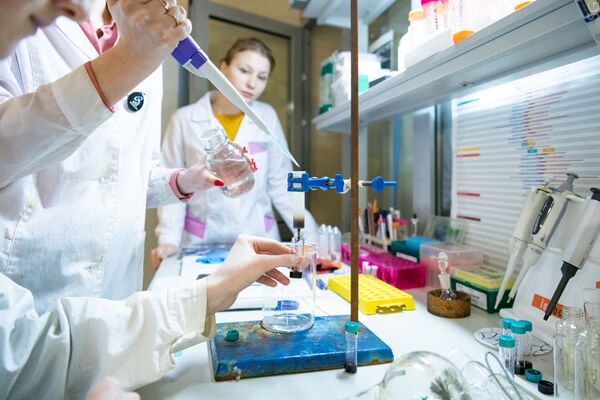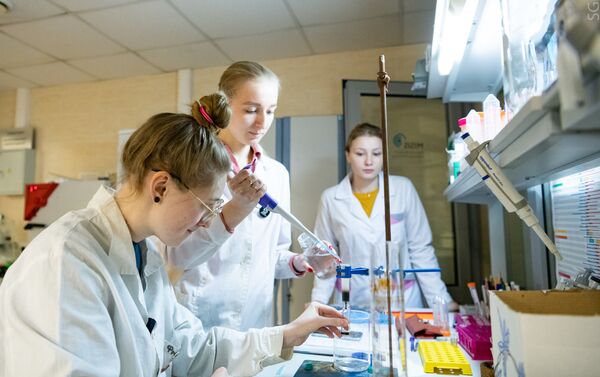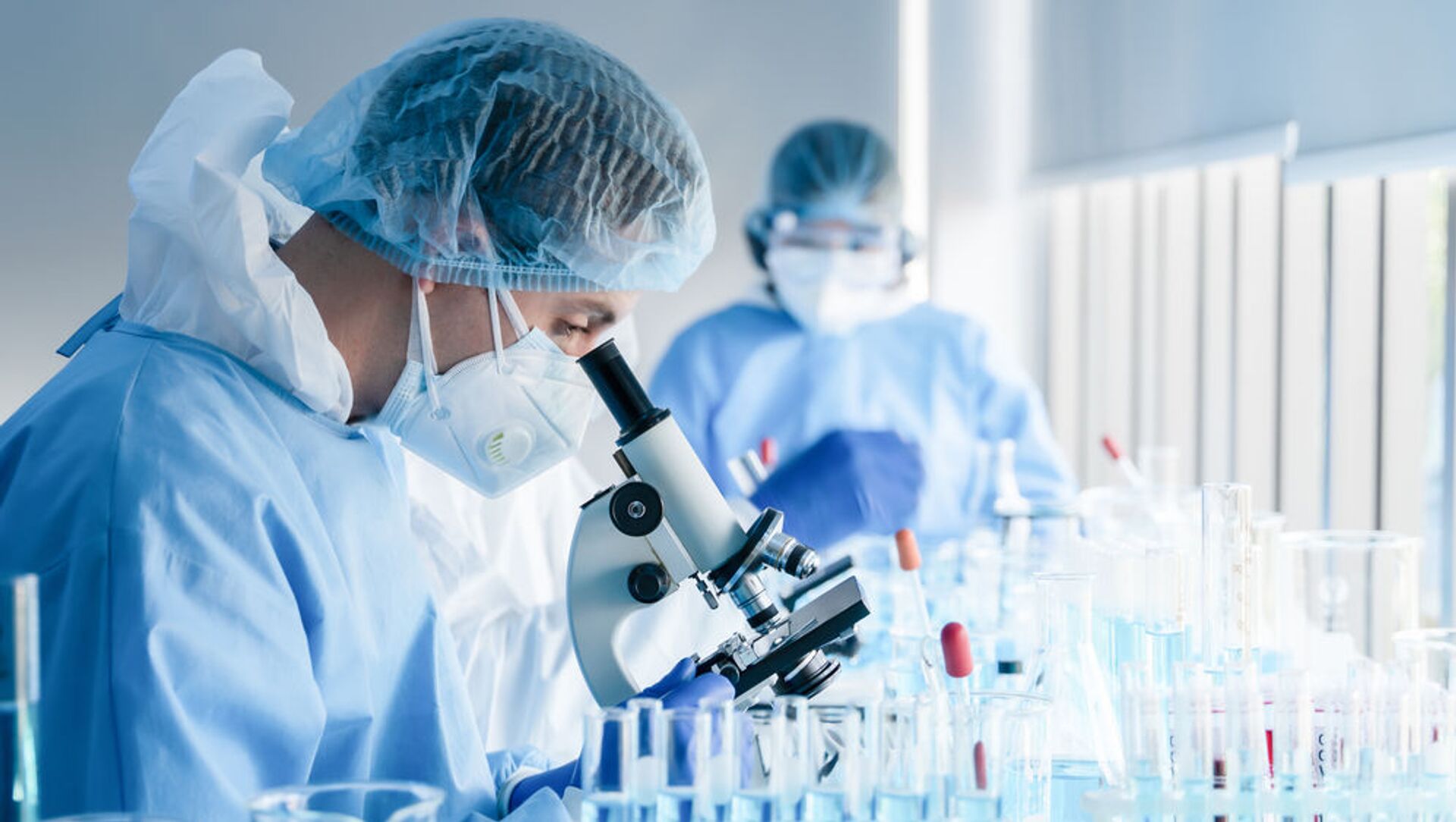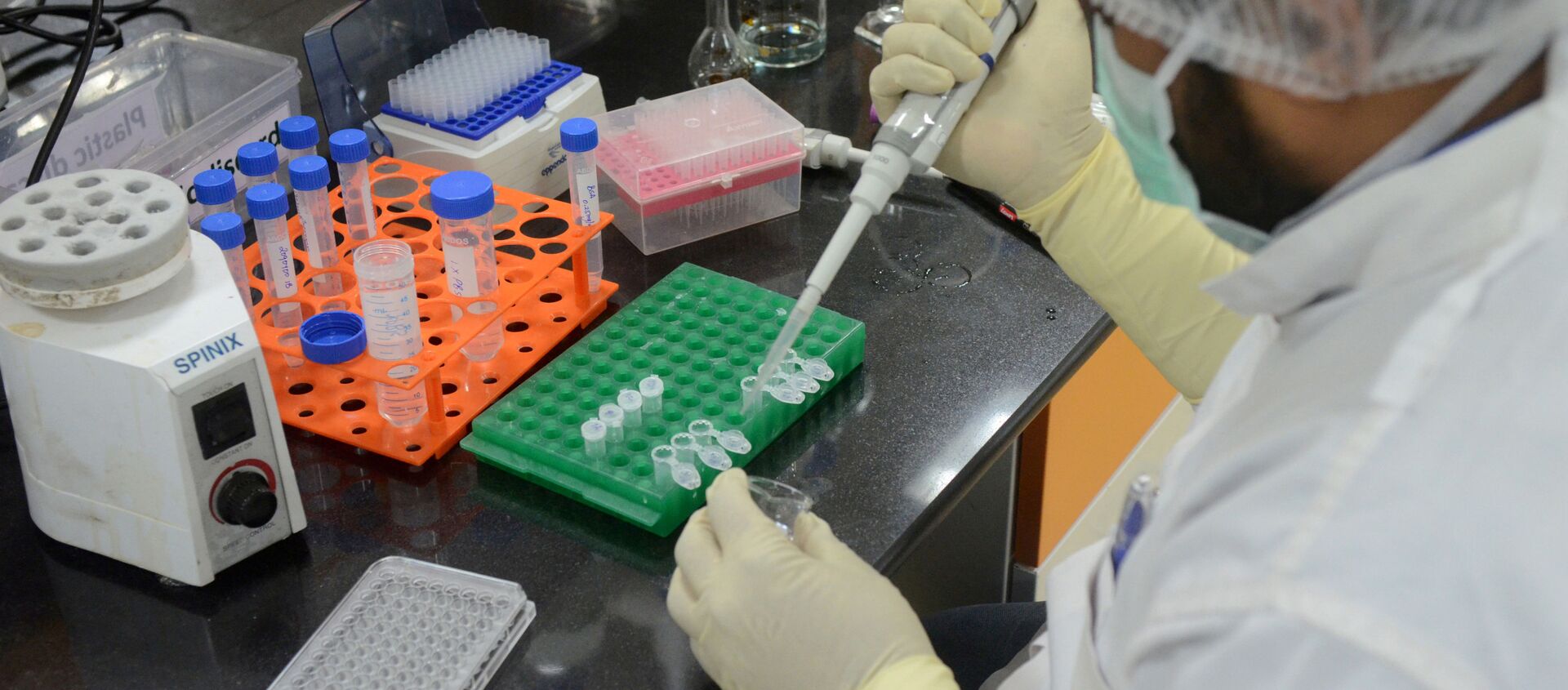According to the authors, the unique development will increase the accuracy and efficiency of therapy for various tumors.
According to the scientists, some promising therapies for tumors such as photodynamic and photothermal therapies require accurate, regular measurement of temperature of living systems at the molecular level.
According to the research, theoretical calculations and existing thermometers are very inconvenient and do not provide high measurement accuracy. In tackling this problem, the team of specialists with the participation of NUST MISIS scientists has synthesised substances that can work as ultra-precise thermometers at the molecular level.
“Molecular thermometers are a class of substances whose optical characteristics change with temperature. We have synthesised two such substances and studied their luminescent properties. The emission spectrum and “lifetime” of fluorescence changes while heated - this is enough to record temperature changes accurate to 0.1 degrees. The same equipment that is used to administer an injected drug displays temperature,” Roman Akasov, expert from the Biomedical Nanomaterials laboratory of NUST MISIS said.
The synthesised substances belong to the well-studied class of water-soluble porphyrins, and, according to the authors of the study, unlike other molecular thermometers are simple to use for synthesis and modification.
After evaluating the toxicity of the obtained thermometers, the scientists found out that one of the compounds is quite toxic when irradiated with a laser. According to the authors, it allows the substance to be used not only as a molecular thermometer, but also as a full-fledged photodynamic drug with built-in thermometry, capable of fighting tumor cells.


Scientists from St. Petersburg State University, the A. N. Frumkin Institute of Physical Chemistry and Electrochemistry of the Russian Academy of Sciences, Kurnakov Institute of General and Inorganic Chemistry of the Russian Academy of Sciences, Lappeenranta University of Technology (Finland), NUST "MISiS", I. M. Sechenov First Moscow State Medical University and Volga State University of Technology took part in the research. The work was carried out within the framework of the project of the Russian Science Foundation No. 19-13-00410.
The immediate task of the scientists is a detailed study of the photophysical properties of the obtained porphyrins under prolonged irradiation during photodynamic therapy. Also, the research team plans to continue the search for new combination drugs.




